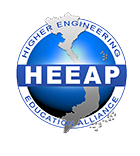Ho Chi Minh City, Vietnam(April 18, 2011) – The United States Agency for International Development (USAID), Arizona State University (ASU) and Intel Corp. announced today a $2-million expansion of a program to improve higher education and technological development in Vietnam. The program, called Higher Engineering Education Alliance Program or HEEAP, was developed jointly with the Government of Vietnam.
Through HEEAP, USAID, ASU’s Ira A. Fulton Schools of Engineering, Intel, Siemens and other industry partners have teamed up with eight top technical universities and colleges in Vietnam on a collaborative initiative to improve the quality of Vietnam’s higher education curriculum and support the country’s growing high-tech industry.
The expansion of the program will enable alliance partners to add a vocational track using the innovative instructional approaches and pedagogy implemented in the inaugural program. The goal of the expanded initiative is to prepare students for success in the global economy through modernization of vocational education programs, resources and instructional technology.
“The world faces a number of very serious challenges ranging from low standards of living and poor health care to armed conflict and the question of whether our planet will be able to sustain life in the future,” said ASU President Michael M. Crow. “To solve these problems we need to modernize every economy and greatly expand access to and the quality of education.
“This collaboration is an example of ASU’s commitment to strengthen the economic, social and cultural vitality of our global community.”
Crow will host an executive briefing during the April 18th meeting in Ho Chi Minh City and explain ASU’s the New American University design and the ability of higher education to drive economic development and high wage job creation. His presentation will be followed by an executive roundtable bringing together technology and industry leaders in Vietnam to discuss HEEAP’s role as a catalyst for both higher education reform and economic
“Competitive economies require a skilled workforce ready to perform efficiently in a global context. HEEAP is not only advancing engineering education in Vietnam today, it is fostering a long-term education-industry relationship,” said USAID Director Francis Donovan.
According to Rick Howarth, General Manager of Intel Products Vietnam - “HEEAP program has seen rapid uptake and promising early outcomes. Further investment and expansion enables Intel and Vietnam to promote a broad, highly engaged workforce that is ready to support a rapidly growing high tech sector as well as to accelerate the role of ICT in the economic growth.” HEEAP works closely with Vietnam’s Ministry of Education and Training, the Ministry of Labor and Social Affairs and leadership at partner universities and technical colleges to implement programs and broad infrastructure that supports faculty training, curricula development and hands-on student learning experiences. Students gain the technical expertise, language proficiency, and the soft skills and competencies needed to succeed.
Dr. Vu Dinh Thanh, rector, Ho Chi Minh City University of Technology, said, “HEEAP works closely with our Ministry of Education and Training and university leadership. It is an effective collaboration strategy that is yielding significant progress toward our goals for our educational system.”
The funding expansion, which runs through 2014, also allows the partners to further efforts to recruit women to engineering and provide student scholarships. Women currentlyaccount for four percent of students enrolled in applied technology programs at Vietnam’s vocational schools.
HEEAP was initiated in 2010 with funding from USAID, Intel and ASU. For more information, visit www.heeap.org.

